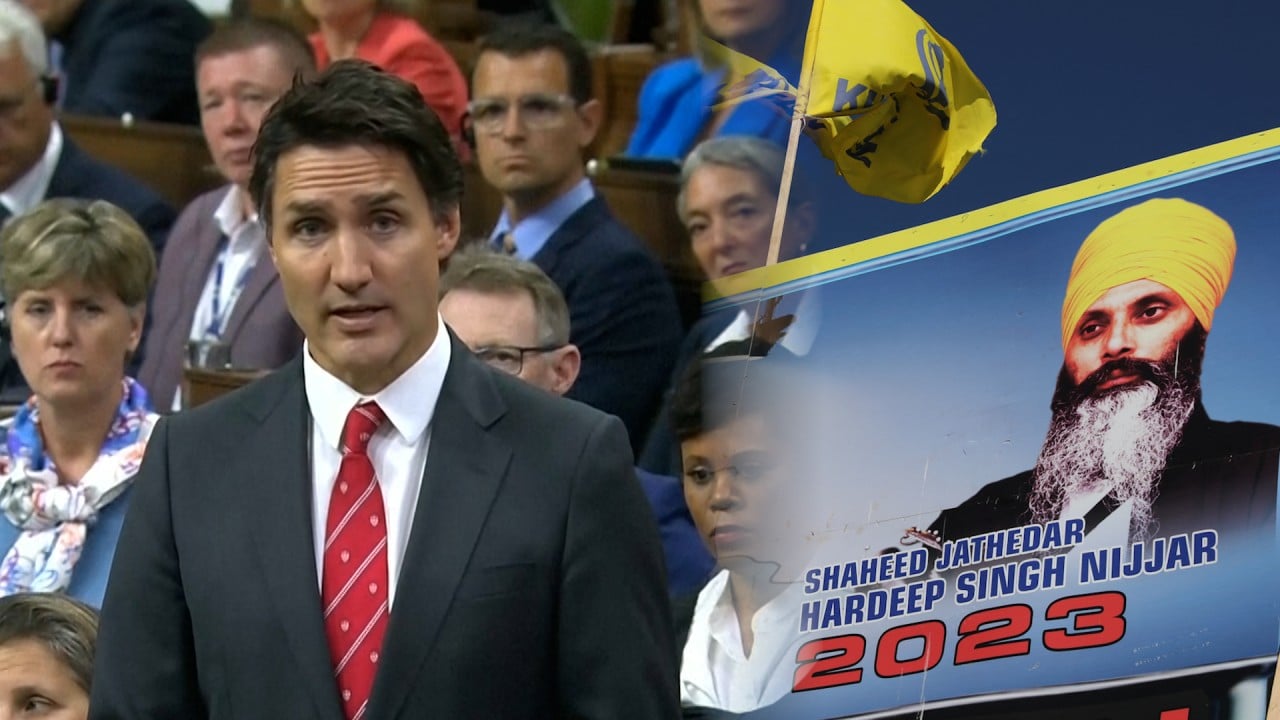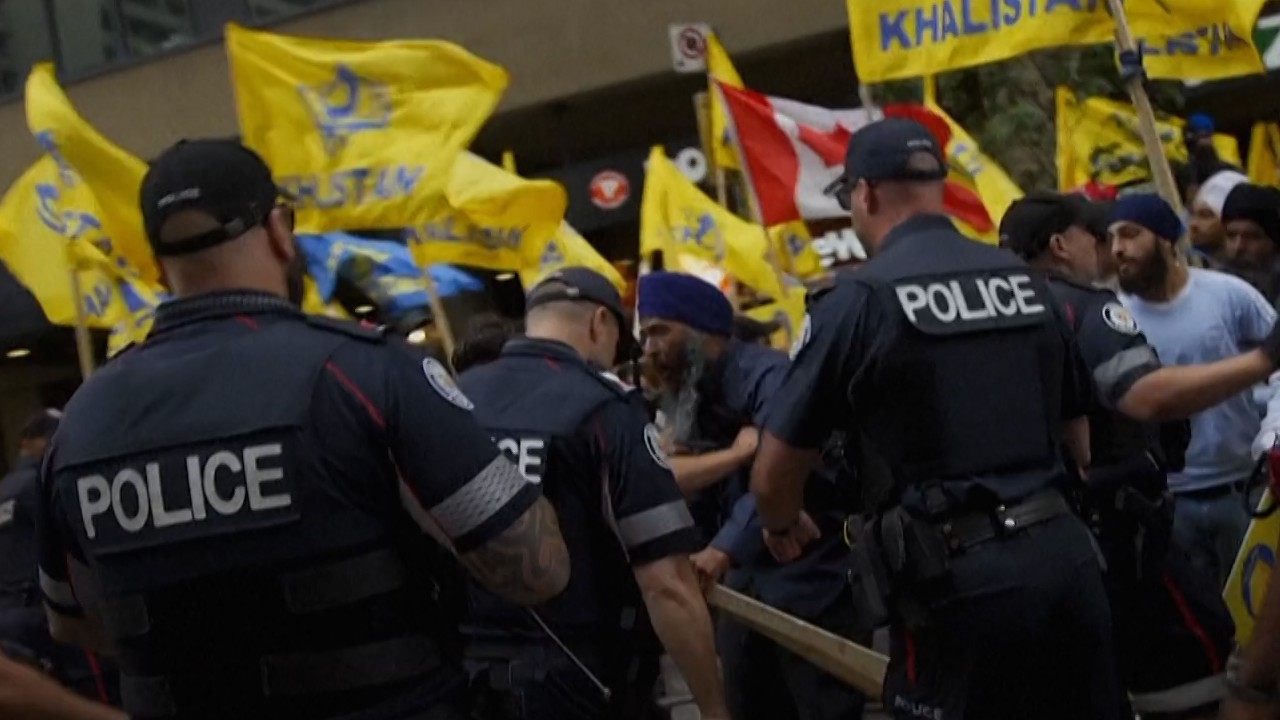Hardeep Singh Nijjar, a Sikh independence advocate whose killing two months ago is at the centre of a widening breach between India and Canada, was called a human-rights activist by Sikh organisations and a terrorist by India’s government.
Canadian Prime Minister Justin Trudeau said Monday that his government was investigating “credible allegations” that Indian government agents were linked to the slaying on June 18 when Nijjar was gunned down outside a Sikh cultural centre in Surrey, British Columbia.
India has denied any role in the killing, calling the allegations absurd.
A separatist or a plumber?
Nijjar was a prominent member of a movement to create an independent Sikh homeland known as Khalistan, and at the time of his death was organising an unofficial referendum among the Sikh diaspora with the organisation Sikhs For Justice.
He also owned a plumbing business and served as president of a Sikh temple or gurdwara in suburban Vancouver. In a 2016 interview with the Vancouver Sun he responded dismissively to reports in Indian media that he was suspected of leading a terrorist cell.
“This is garbage – all the allegations. I am living here 20 years, right? Look at my record. There is nothing. I am a hard worker. I own my own business in the plumbing,” Nijjar told the newspaper.
Following his death, the World Sikh Organisation of Canada called Nijjar an outspoken supporter of Khalistan who “often led peaceful protests against the violation of human rights actively taking place in India and in support of Khalistan”.
Why was Nijjar wanted in India?
Nijjar was a wanted man in India, where authorities labelled him a terrorist in 2020.
In 2016, Indian media reported that he was suspected of masterminding a bombing in the Sikh-majority state of Punjab and training terrorists in a small city southeast of Vancouver. He denied the allegations.
Canada-India diplomatic tensions worsen over Sikh leader’s murder
Canada-India diplomatic tensions worsen over Sikh leader’s murder
India also filed a criminal case against Nijjar in 2020 for “conspiring to create an atmosphere of fear and lawlessness, and inciting people to rise in rebellion against the Government of India” when farmers, many from Punjab, camped out on the edges of New Delhi to protest controversial agriculture laws.
Last year, Indian authorities accused Nijjar of involvement in an alleged attack on a Hindu priest in India and announced a reward of about US$16,000 for information leading to his arrest.
How has India cracked down?
The modern Sikh independence movement reaches back to the 1940s but eventually became an armed insurgency that shook the country in the 1970s and 1980s. In 1984, then Prime Minister Indira Gandhi ordered a raid to capture armed separatists taking refuge in Sikhism’s holiest shrine.
The raid killed hundreds of people, and two of Gandhi’s Sikh bodyguards assassinated her soon after. In response, anti-Sikh riots took place across India in which members of the minority were dragged out of their homes and killed.
More recently, the Hindu nationalist-led government of Prime Minister Narendra Modi has cracked down on both non-Hindu rights movements and dissidents.
Why was he killed?
Canadian police said Nijjar was shot as he was leaving the car park of the Sikh temple where he served as president in British Columbia. He suffered multiple gunshot wounds and died at the scene.
After the killing, a lawyer and spokesman for Sikhs For Justice, Gurpatwant Singh Pannun, said Nijjar had been a target of threats because of his activism. His killing was the second in two years of a prominent member of the Sikh community in Canada.
Pannun said he had spoken to Nijjar by phone the day before he was killed and that Nijjar had told him that Canadian intelligence had warned him that his life was at risk.
What was the impact on the Sikh community?
Nearly a week after Nijjar’s slaying, about 200 protesters from Canada’s Sikh community gathered in front of the Indian consulate in Vancouver to demonstrate. Many of the protesters were convinced that Nijjar’s killing was linked to his calls for an independent Sikh state.
“He was a loving man, a hard-working man, a family man,” said Gurkeerat Singh, one of the protesters.
Hardeep Singh Nijjar, advocate for separate Sikh state, shot dead in Canada
Hardeep Singh Nijjar, advocate for separate Sikh state, shot dead in Canada
On Monday, Moninder Singh, a spokesman for the British Columbia Sikh Gurdwara Council, told Canada’s CTV that the wave of support for Nijjar seen after his death was an indication of how he was seen in the community.
“It shook the community across the entire world, including in Punjab,” Singh said.
“The community is shattered. There are very, very high emotions,” Sukh Dhaliwal, a member of parliament who represents Surrey, said days after the killing.



